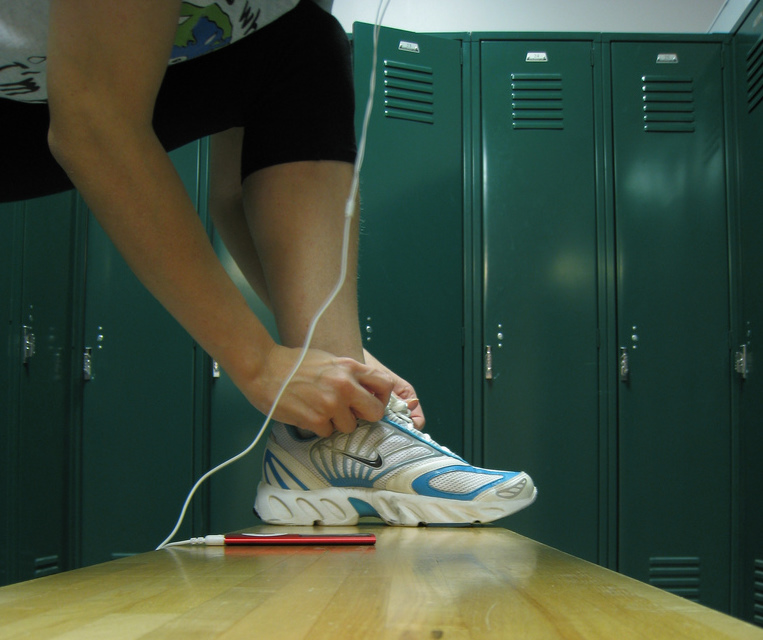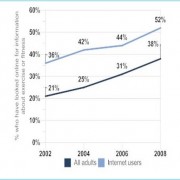Health Tracking Comes Out Of The Closet
Can you spot the popular self-tracking device in this photo?
It’s not the sleek, quarter-sized Shine from Misfit Wearables. It’s the blue jeans.
An intriguing new report, Tracking for Health, from Susannah Fox and Maeve Duggan at Pew Research Center’s Internet & American Life Project finds:
- 7 in 10 U.S. adults report they track a health indicator (like weight, diet, exercise routine, or symptom) for themselves or for a loved one.
- 6 in 10 adults say they track weight, diet, or exercise routine.
Of all these trackers:
- 49% say they keep track of progress “in their heads.”
- 34% say they track the data on paper, like in a notebook or journal
- 21% say they use some form of technology to track their health data
- 8% of trackers use a medical device, like a glucose meter
- 7% use an app or other tool on their mobile phone or device
- 5% use a spreadsheet
- 1% use a website or other online tool
As the authors astutely note:
“This makes some sense since all someone might need to track their weight is a scale — or even a pair of jeans that only fit if someone is at their target weight. This finding is, however, a challenge to technology developers who would like to convince people to upgrade their habits. In order to capture this segment of the market they must strive to create a tool that is as seamless as keeping track in your head.”
Indeed, the importance of a seamless experience is backed up by data from a national survey on jeans conducted by The Consumer Reports National Research Center in 2010:
- 62% of women use their jeans as a measure of whether they need to lose weight
- 50% of women are holding onto a pair of their “skinny jeans” in hopes of squeezing into them again
Makers of tracking gadgets would do well to pay attention to how women describe their jeans.
According to the Consumer Reports survey,
- When asked about jeans, a majority of women agree: “We’d live in them if we could!”
- 85% of women typically wear jeans at least once a week, though more than half said they’d wear jeans every day if they could get away with it.
- Women spend just $34 for a pair of jeans, on average
- 54% of women generally like the way they look in jeans, 40% admit they feel sexy in their jeans but 8% dislike or hate the way they look.
Have you spent more than $34 for a tracking gadget, and does that gadget make you feel sexy?
Recommended reading
- Tracking for Health, Susannah Fox and Maeve Duggan, Pew Research Center Internet & American Life Project, Jan 28, 2013.
- The e is for engagement, Susannah Fox
- Pew Internet Research: 21% Self-Track with Technology, Ernesto Ramirez, Quantified Self
- Formally tracking health data changes health behavior and drives social health, Jane Sarasohn-Kahn, Health Populi
- Tracking for Health: A Report by Pew Internet, Jennifer Isaacs, Going to Med School
Related posts
- Is your activity tracking gadget accurate? Do you care?
- Track, share and compare: The hot trend of self-tracking
- Self-tracking meets ready-to-wear: Make room in your closet for smart clothes
- The 7 Habits of Highly Effective Weight Loss Maintainers
- A Shiny New Activity Tracker: Technology as Talisman?
Wearable Tech Pinterest Board (250+ tracking gadgets)










Carol this is a really interesting roundup of info about the very hot topic of wearable computing and health tracking. When I first read that 70% of American adults are tracking health indicators, I thought to myself, “wow this movement is really in fast forward and I better not fall behind!” But THEN I see that half of those are simply keeping tracking in their head. Fascinating! As you say, we need “a tool that is as seamless as keeping track in your head” and to me that’s exactly what wearable computing will soon achieve. Just like nowadays we don’t memorize phone numbers like we used to because they’re all stored in our phones, I can see the same trend coming true within 2 years with regard to tracking health and fitness indicators. The technology is getting tinier and more stylish with each iteration. We shall see.